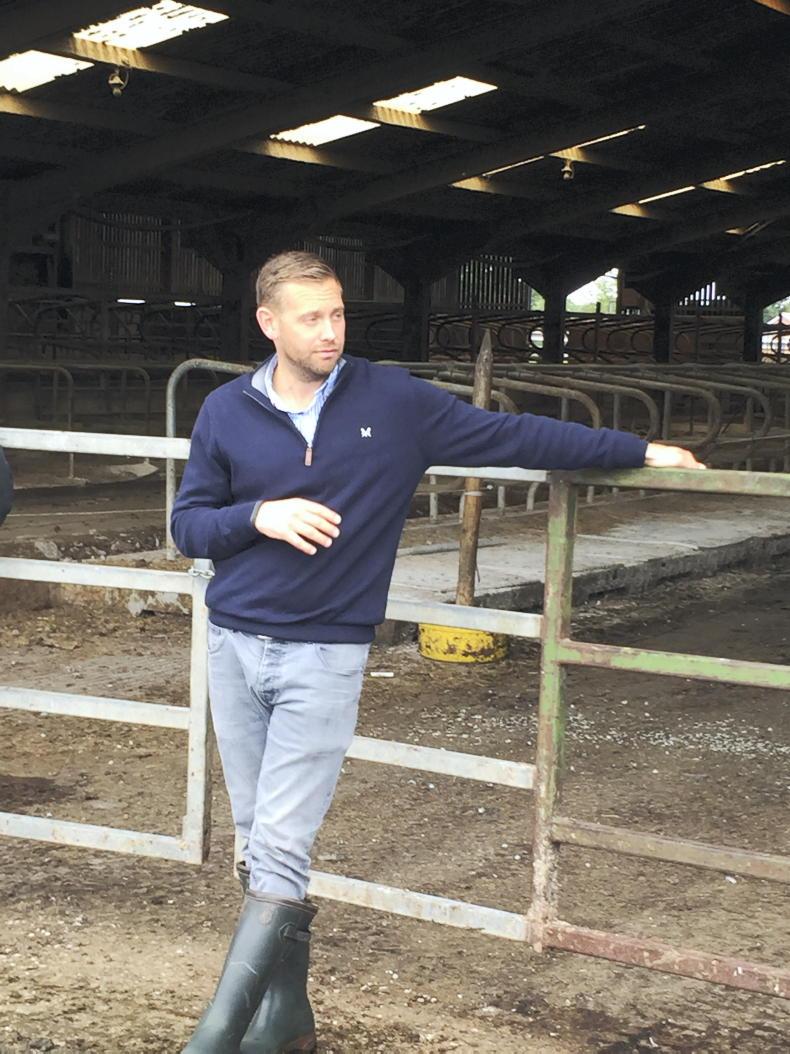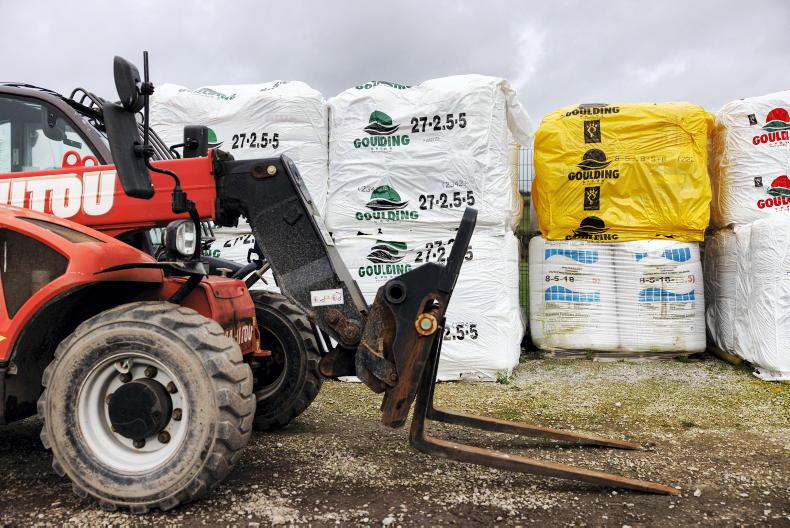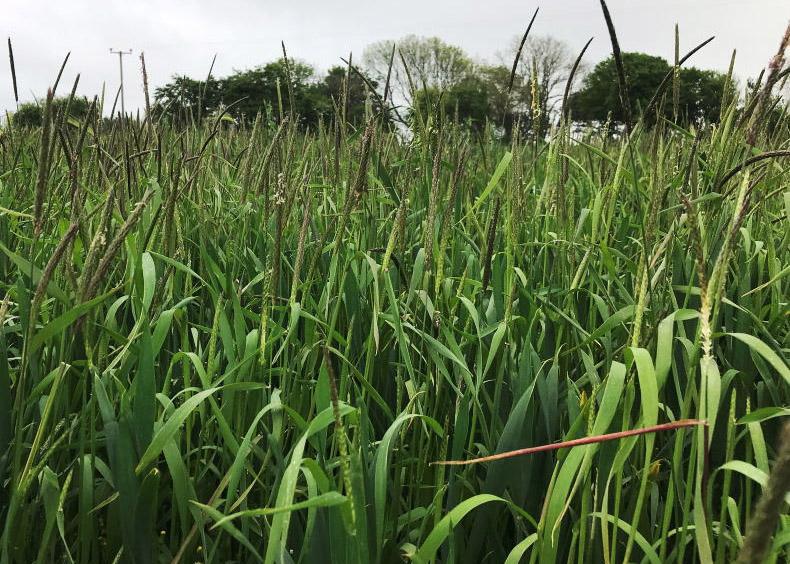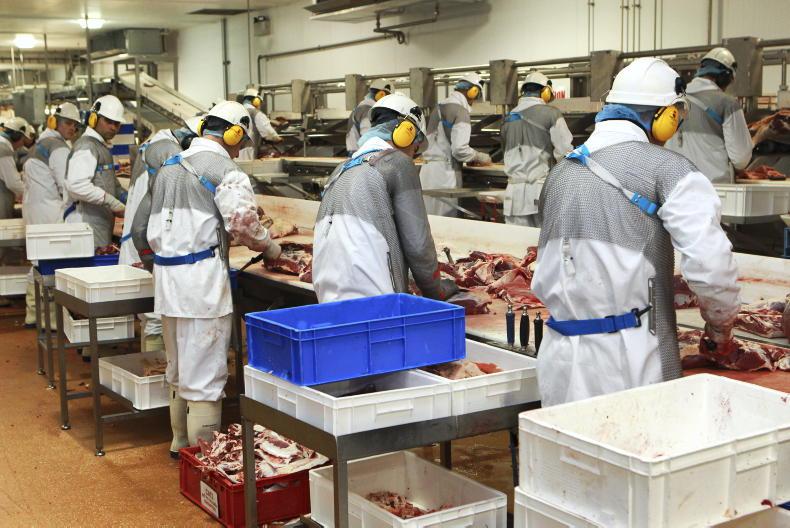These are risky times to be a dairy farmer. Major risks, such as milk price crashing, input costs soaring or cuts to the nitrates derogation have all taken place over the last 12 months.
The best defence mechanism against these risks is to be a very profitable milk producer. So says New Zealand-based farm business consultant, Paul Bird.
Paul is flying into Ireland next January to speak at the annual Positive Farmers Conference in Cork. The theme of the two-day event is ‘protecting your profits in challenging times’.
Paul will be speaking on both days. On day one, he will present his vision of what a profitable, well-structured dairy farm business looks like.
A DairyNZ employee, Paul works extensively with farmers in New Zealand on ways to increase farm profit, and has run similar courses in Ireland and the UK in recent years.
He also spent two years working as a farm consultant here in the early 2000s, so has a strong grasp of the Irish production system.
The combination of higher stocking rates on milking platforms and lower grass growth rates, as a result of weather and less chemical nitrogen usage, has increased reliance on purchased feed, something which Paul says increases risk, because the business is now more exposed to meal prices than it was before.
“Input cost inflation, like what we saw in 2022 and which carried into 2023, is less of a problem if the amount of inputs being purchased by the farm is low to begin with. But where there is a high reliance on inputs to sustain a stocking rate or to drive production out of cows, then that farm is really exposed,” he says.
At lower stocking rates, such as those which are now more likely due to reductions in the derogation, Paul says that grassland management is even more important because inputs like meal and chemical nitrogen may be lower.
“Maintaining good quality grass is often more challenging at lower stocking rates and where there are less inputs used, so good grassland management skills will be even more important,” he says.
Financial methods and tips
Paul will also be sharing methods, concepts and tips for cashflow forecasting and financial budgeting in order to improve cost control.

Paul Bird, DairyNZ, will be sharing methods, concepts and tips for budgeting.
While the outlook for milk price is improving, margins are very tight on most farms and cash is tight on some farms, due to much larger than normal tax bills being paid out this month.
On day two, Paul will be joined by UK dairy farmer Ed Dale, where they will share practical tips on how costs can be reduced as well as ways and means of assessing opportunities.

Ed Dale, Cheshire, England.
On the subject of milk price, Tirlán co-op CEO Jim Bergin will be speaking on the outlook for dairy markets in 2024 and his vision for the future direction of Tirlán and the Irish dairy industry.
As the regulations around calf movements and outlets are set to change, the conference will examine the steps that farmers can take to manage calf welfare and improve the beef merit of dairy beef.
Padraig French from Teagasc will give an industry update on calf statistics, dairy-beef programmes, and appropriate breeding strategies to maximise genetic gain in dairy EBI for dairy replacements and commercial beef value for all other calves born on the farm.
Waterford dairy farmer Jim Curran will speak about his experiences while using sexed-semen and high-Dairy Beef Index AI bulls on his Jersey crossbred herd. Jim will share breeding results, what went well, what could have gone better and what changes the Currans plan on making to the breeding programme in the future.
Succession
As ever, the conference blends a mix of technical farming, financial management and life/health advice and information.
One of the big topics at January’s event will be ‘succession’ and this will be being dealt with in three parts.
Firstly, for the professional view, Claire O’Keeffe from Succession Ireland will share her experiences of dealing with succession on family farms.
Claire works with families who are planning for succession and inheritance.
She meets with all family members and facilitates a discussion in order to ensure that everyone is on the same page and understands what is happening, who is responsible for what and, importantly, what roles people will have after the process is complete.
Claire also works in mediation, helping to solve disputes when things go wrong, so she has a wealth of knowledge about the ‘dos’ and ‘don’ts’ of succession planning, which she will be sharing at the conference.
Secondly, retired dairy farmer Anthony Betts will share his experience of life after he retired as a full-time dairy farmer. With neither of his children interested in taking over the running of the farm, Anthony and the Betts family came up with a plan for him to step back from running the farm and the land is now leased.
However, Anthony is still actively involved in farming and offers a grass measuring and management service to local farmers. This allows him to remain involved in farming, to utilise his skills as a top-class farmer, and it keeps him active and engaged while giving him a sense of purpose.
Anthony will share his experience of retirement and succession planning.
The third round of speakers at this session are Tom and Moya Power from Dungarvan, who are going to share their family story of succession and how they are now in the position where it’s something they need to think about themselves.
“We’ve been lucky enough that we’ve come from a great succession story, from my parents to us. They dealt with the subject quite early on and gave us a great grounding as to what a successful succession should look like.
"It’s important for us now to ensure that there’s a positive work/life balance on the farm to encourage the next generation to be part of the farm again,” Tom says.
“It’s important that the ‘next generation’ encompasses the whole family; that we inspire the next generation, so that they want to work and live on the farm; that they get opportunities to get out and about to see the world, but that they also know that the opportunities are there at home for them, regardless of their age or gender.
One of the big topics at January’s event will be ‘succession’ and this will be being dealt with in three parts
"The future in farming for females is just as important as it is for males,” Moya says.
Also speaking at the conference will be Welsh farmer Will Evans, who will share his experiences of mental health challenges, how he managed to get through it, and the changes he has made in his life to make sure that he never goes back to that place again.
Will is going to be joined by Dr Paula Carroll, who will share her professional experience of how dairy farmers can use tools to maintain resilience, avoid burnout and deal with challenging workloads.
She will share details of the science around stress indicators, the importance of sleep, rest and nutrition and how to cultivate a positive mindset.
The event will be taking place on 10 and 11 January 2024 at Radisson Blu Hotel, Little Island, Cork.
These are risky times to be a dairy farmer. Major risks, such as milk price crashing, input costs soaring or cuts to the nitrates derogation have all taken place over the last 12 months.
The best defence mechanism against these risks is to be a very profitable milk producer. So says New Zealand-based farm business consultant, Paul Bird.
Paul is flying into Ireland next January to speak at the annual Positive Farmers Conference in Cork. The theme of the two-day event is ‘protecting your profits in challenging times’.
Paul will be speaking on both days. On day one, he will present his vision of what a profitable, well-structured dairy farm business looks like.
A DairyNZ employee, Paul works extensively with farmers in New Zealand on ways to increase farm profit, and has run similar courses in Ireland and the UK in recent years.
He also spent two years working as a farm consultant here in the early 2000s, so has a strong grasp of the Irish production system.
The combination of higher stocking rates on milking platforms and lower grass growth rates, as a result of weather and less chemical nitrogen usage, has increased reliance on purchased feed, something which Paul says increases risk, because the business is now more exposed to meal prices than it was before.
“Input cost inflation, like what we saw in 2022 and which carried into 2023, is less of a problem if the amount of inputs being purchased by the farm is low to begin with. But where there is a high reliance on inputs to sustain a stocking rate or to drive production out of cows, then that farm is really exposed,” he says.
At lower stocking rates, such as those which are now more likely due to reductions in the derogation, Paul says that grassland management is even more important because inputs like meal and chemical nitrogen may be lower.
“Maintaining good quality grass is often more challenging at lower stocking rates and where there are less inputs used, so good grassland management skills will be even more important,” he says.
Financial methods and tips
Paul will also be sharing methods, concepts and tips for cashflow forecasting and financial budgeting in order to improve cost control.

Paul Bird, DairyNZ, will be sharing methods, concepts and tips for budgeting.
While the outlook for milk price is improving, margins are very tight on most farms and cash is tight on some farms, due to much larger than normal tax bills being paid out this month.
On day two, Paul will be joined by UK dairy farmer Ed Dale, where they will share practical tips on how costs can be reduced as well as ways and means of assessing opportunities.

Ed Dale, Cheshire, England.
On the subject of milk price, Tirlán co-op CEO Jim Bergin will be speaking on the outlook for dairy markets in 2024 and his vision for the future direction of Tirlán and the Irish dairy industry.
As the regulations around calf movements and outlets are set to change, the conference will examine the steps that farmers can take to manage calf welfare and improve the beef merit of dairy beef.
Padraig French from Teagasc will give an industry update on calf statistics, dairy-beef programmes, and appropriate breeding strategies to maximise genetic gain in dairy EBI for dairy replacements and commercial beef value for all other calves born on the farm.
Waterford dairy farmer Jim Curran will speak about his experiences while using sexed-semen and high-Dairy Beef Index AI bulls on his Jersey crossbred herd. Jim will share breeding results, what went well, what could have gone better and what changes the Currans plan on making to the breeding programme in the future.
Succession
As ever, the conference blends a mix of technical farming, financial management and life/health advice and information.
One of the big topics at January’s event will be ‘succession’ and this will be being dealt with in three parts.
Firstly, for the professional view, Claire O’Keeffe from Succession Ireland will share her experiences of dealing with succession on family farms.
Claire works with families who are planning for succession and inheritance.
She meets with all family members and facilitates a discussion in order to ensure that everyone is on the same page and understands what is happening, who is responsible for what and, importantly, what roles people will have after the process is complete.
Claire also works in mediation, helping to solve disputes when things go wrong, so she has a wealth of knowledge about the ‘dos’ and ‘don’ts’ of succession planning, which she will be sharing at the conference.
Secondly, retired dairy farmer Anthony Betts will share his experience of life after he retired as a full-time dairy farmer. With neither of his children interested in taking over the running of the farm, Anthony and the Betts family came up with a plan for him to step back from running the farm and the land is now leased.
However, Anthony is still actively involved in farming and offers a grass measuring and management service to local farmers. This allows him to remain involved in farming, to utilise his skills as a top-class farmer, and it keeps him active and engaged while giving him a sense of purpose.
Anthony will share his experience of retirement and succession planning.
The third round of speakers at this session are Tom and Moya Power from Dungarvan, who are going to share their family story of succession and how they are now in the position where it’s something they need to think about themselves.
“We’ve been lucky enough that we’ve come from a great succession story, from my parents to us. They dealt with the subject quite early on and gave us a great grounding as to what a successful succession should look like.
"It’s important for us now to ensure that there’s a positive work/life balance on the farm to encourage the next generation to be part of the farm again,” Tom says.
“It’s important that the ‘next generation’ encompasses the whole family; that we inspire the next generation, so that they want to work and live on the farm; that they get opportunities to get out and about to see the world, but that they also know that the opportunities are there at home for them, regardless of their age or gender.
One of the big topics at January’s event will be ‘succession’ and this will be being dealt with in three parts
"The future in farming for females is just as important as it is for males,” Moya says.
Also speaking at the conference will be Welsh farmer Will Evans, who will share his experiences of mental health challenges, how he managed to get through it, and the changes he has made in his life to make sure that he never goes back to that place again.
Will is going to be joined by Dr Paula Carroll, who will share her professional experience of how dairy farmers can use tools to maintain resilience, avoid burnout and deal with challenging workloads.
She will share details of the science around stress indicators, the importance of sleep, rest and nutrition and how to cultivate a positive mindset.
The event will be taking place on 10 and 11 January 2024 at Radisson Blu Hotel, Little Island, Cork.











SHARING OPTIONS